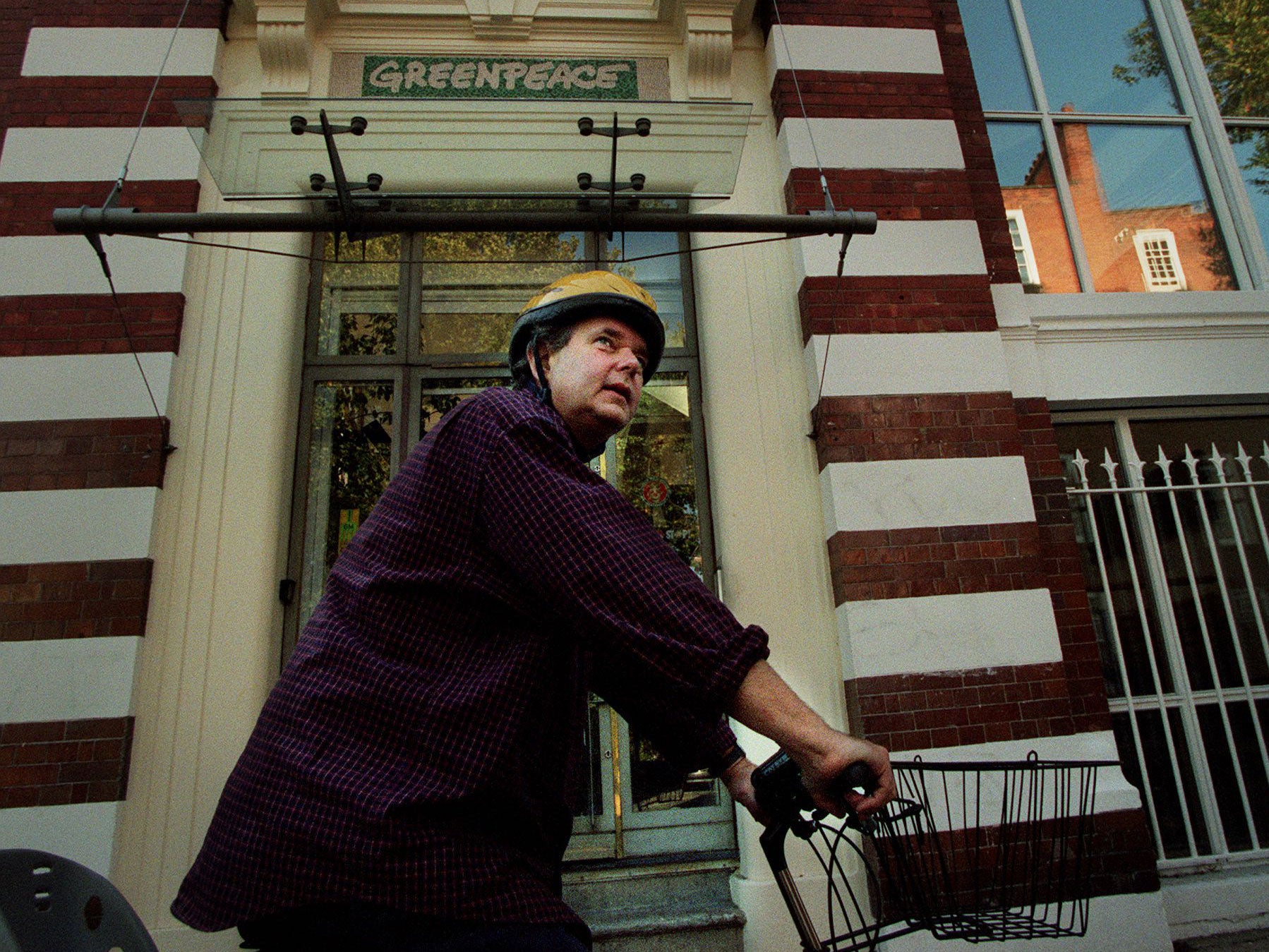Peter Melchett: Eton-education son of an industrialist who became a radical environmentalist heading Greenpeace
Shortly after graduating in law at Cambridge, he became a Labour peer dedicated to social justice but left politics to throw himself into hands-on campaigning for environmental issues

“It would be hard to imagine a man whose public life has more sharply diverged from his background than Peter Robert Henry Mond,” The Independent observed in 2000.
In a boost for the anti-GM movement, of which he was a fierce advocate, Peter, the 4th Baron Melchett – who has died aged 70 – was, having spent two nights in prison, unexpectedly cleared of criminal damage after leading a dawn raid to destroy genetically modified maize on the Walnut Tree Farm in Norfolk.
It was an event that catapulted the Eton- and Cambridge-educated peer – and then executive director of Greenpeace – to national attention. On 26 July 1999, he and 27 fellow eco-warriors attempted to sabotage a six-acre crop of maize, genetically modified by German company Aventis to be tolerant of one of its weedkillers.
The great-grandson of Sir Alfred Mond, founder of the British chemicals giant ICI, a law graduate, may have appeared a rebel, but as far as he was concerned he was carrying on “a family tradition of trying to do the right thing”.
“Sir Alfred Mond,” Peter once said, “was one of the first employers to give his workers paid holidays. He spoke out on many issues such as women’s rights and Ireland.”
Sir Alfred’s father, a chemist, had moved to from Germany to Britain in 1964 where he felt Jews felt less prejudice – the family prospered. Sir Alfred was ennobled by Lloyd George. His son, Julian Melchett, was the industrialist Harold Wilson appointed to nationalise British Steel.
Born in London in the late Forties, to Julian and Sonia (nee Graham), a socialite known for hosting literary parties, Peter grew up on the family’s 800-acre farm in Norfolk. Aged 13 he found two dead partridges killed, he deduced, by pesticides his father was using – and so was born an environmental crusader.
When his father died of a heart attack in the 1973, Peter decided not to “do a Tony Benn” and relinquish his privilege to enter the House of Lords – but he remains one of the few to have done so for the leverage it would lend causes such as legalising cannabis and squatters’ rights.
A socialist, Peter took to being vegetarian early on, baffled as he was by his social class’s penchant for hunting.
Chairing a government committee on music festivals in 1976 – when instances of violence had turned public opinion against them – he oversaw a report that recommended “rock on taxpayers’ expense” earning him the title “Lord Pop”.
At a CND protest in 1985 he ignored the warning of Conservative politician Lady Olga Maitland in trying to cut the perimeter wire the American air base at Sculthorpe in Norfolk. “Peter, Peter don’t do it – it’ll ruin your career,” she said. It didn’t but simply set him on a different course – by the next year he had left parliament to be chairman of Greenpeace, helping to steer the organisation towards becoming the slick behemoth of radical environmental action it is today.
Until 1986, he remained part-time chair of the government’s community industry initiative, secured worked for young people in poor places. He was president of the Ramblers’ Association – scourge of the landed gentry he was descended from – from 1981 to 1984. He left Greenpeace in 2001.
While there he oversaw huge campaigns against whaling, nuclear waste at Sellafield and Shell’s plans to dispose of its oil-storage buoy Brent Spar in the North Sea.
For the past 18 years he had been policy director of the Soil Association.
He is survived by his partner, painter Cassandra Wedd, whom he never married, reportedly to avoid their son and daughter being lumbered with his hereditary title.
Peter Mond, 4th Baron Melchett, environmentalist, born 24 February 1948, died 29 August 2018
Join our commenting forum
Join thought-provoking conversations, follow other Independent readers and see their replies
Comments
Bookmark popover
Removed from bookmarks